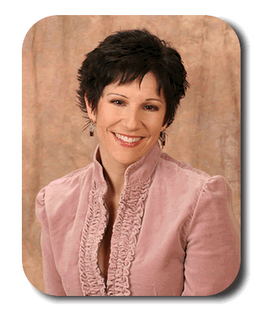VERTIGO - Lauren Baratz-Logsted

In fall of 2000, I was visiting my in-laws down in Florida, my infant daughter in tow, when I got the idea for VERTIGO. Don’t ask me what it was about staying with relatives that put the notion in my head to write a book about a woman who ultimately decides to kill her husband, but there you have it.
As I was walking one day in the heat, the basic plot came to me, complete with opening and closing lines. My character, Emma Smith, would be a good, even exemplary wife, as she informs readers at the beginning of the book. She would vow one New Year’s Eve to become “a better person” and her husband, a novelist, would set her up writing letters to a prisoner in jail for murdering his own wife. The correspondence, the idea that he was in there and would never be out here, would ultimately free Emma to become her real self for the first time. And then, when he’s ultimately released…
As soon as I returned home to Connecticut, I began to write. Immediately, I could hear Emma’s voice clearly in my head. And, also immediately, I knew her story would need to be set in a previous time period, because otherwise readers would say, “Why doesn’t she just leave her husband, if she’s become so unhappy?” Emma needed to be a victim of her time as much as anything else and so I cast her story in the Victorian era.
The next fifty-five days, the amount of time it took to write the first draft, became a torrid whirlwind of writing, unlike any I’d experienced before. My previous novel-writing efforts had mostly been some form of comedy or satire, but VERTIGO tapped a different area in me: it was a walk on the dark side. For fifty-five days, I wrote in the early hours of the morning, wrote while my daughter breastfed or napped, the soundtrack for The Piano playing almost constantly in the background as I did crude ballet moves around the room during chapter breaks.
When I was finished, I was atypically pleased with my creation, but my agent at the time, Agent 2, was not. Agent 2 was busily trying to sell an earlier work and said that VERTIGO was wonderful but that Agent 2 didn’t know any editors who did books set in other time periods, nor did it help any when I provided a list.
By the following fall, I was with a new agent. Agent 3 had fallen in love with VERTIGO on first reading, said it could be a blockbuster book and film if only I would change this…and this…and this. So I started making changes, revision after revision. In the beginning the changes were all good, but then they started to stop making sense. Around the time I was getting revision fatigue, I sold, all on my own, another novel, a satire called The Thin Pink Line, and that caused VERTIGO to be put on hold once again.
One of the ways Agent 4 wooed me was with passion for VERTIGO. But, again, it was a case of, “If only you’ll change this…and this…and this…” Agent 4 had me add approximately one hundred pages of background and scenery to the book.
A year later, Agent 5 had me take nearly all of those changes out and then do further changes.
By the time I signed with Agent 6, I not only had manuscript fatigue, I also had agent fatigue. I promised myself that the next time I made changes, it would be because an editor was requesting them and there was money on the table.
And that’s exactly what happened. Not two months after signing with Agent 6, but almost five years after I initially put pen to paper to write VERTIGO, it sold at auction.
Then more changes were made, fantastic changes at the suggestion of my brilliant editor.
Of all the novels I’ve ever written, and there have been more than you might think, more time and effort and passion has gone into VERTIGO than any other book.
Here is the thing, though: Even as it goes out into the world, I know changes could yet be made. Oh, not necessarily changes to make it better; if I saw the need for those sorts of changes, I’d have made them. I mean lateral changes, the kind of changes where someone might say, “If you did this…,” and then we’d have a different story; not better, just different. VERTIGO, it turns out, is my chameleon book.
And here is the other thing: Despite everything the book has cost me, I do not resent even a second I have invested in it. VERTIGO is like that child you have that amazes you every day, causing you to ask, “How did you get here?”
 Every time I look at the brilliant cover Bantam created, and glance at random at the pages within, I think to myself, “How did you get here?”
Every time I look at the brilliant cover Bantam created, and glance at random at the pages within, I think to myself, “How did you get here?” _____________________________________
Lauren Baratz-Logsted, in addition to Vertigo, has written four Chick-Lit novels: The Thin Pink Line, Crossing the Line, A Little Change of Face, and How Nancy Drew Saved My Life. She is also the editor of and contributor to the anthology This Is Chick-Lit and the author of the forthcoming serious Young Adult novel Angelâ's Choice. You can read more about her work at www.laurenbaratzlogsted.com.



<< Home